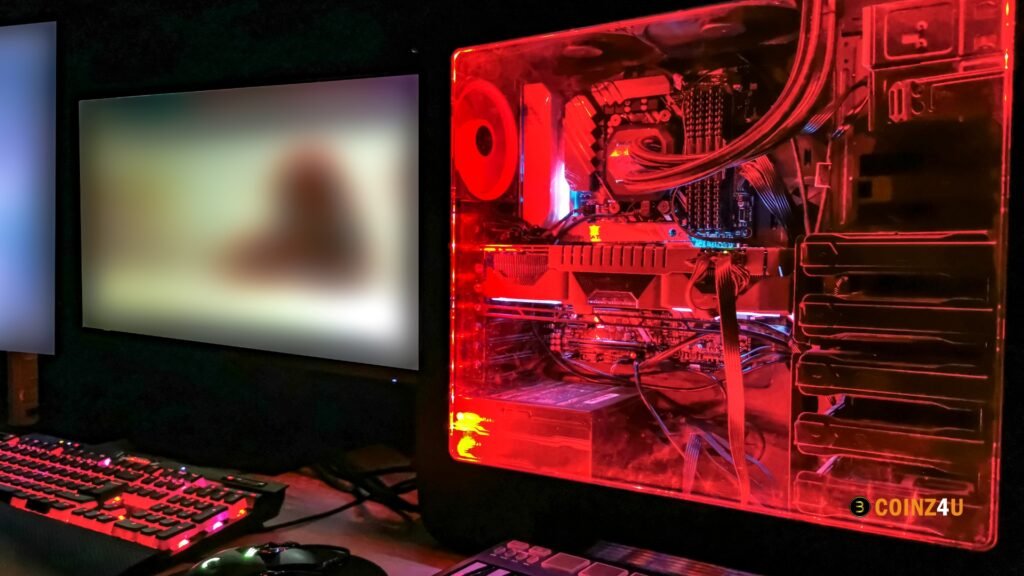The gaming sector is the latest to embrace blockchain technology, which has expanded beyond cryptocurrency. Opportunities for gamers, developers, and investors have expanded to new heights as a result of the merging of decentralized technologies with gaming. By providing players with more excellent agency, transparency, and novel revenue options, blockchain gaming is reshaping. The game development, distribution, and playthrough processes. The most recent developments and trends influencing blockchain gaming in 2024 will be explored in this article.
Play-to-Earn (P2E) Games on the Rise
The proliferation of play-to-earn (P2E) games stands out among blockchain gaming trends. By completing in-game tasks, users of these games can earn cryptocurrency or NFTs (non-fungible tokens). P2E games compensate players for the time and effort they put in, as opposed to conventional games. That requires players to spend real money on in-game items. Axie Infinity, Decentraland, and Gods Unchained are a few of the well-known P2E games.

In South America and Southeast Asia, where players may make a lot of money from playing, this approach has proven very popular. To further decentralize the gaming economy, “scholarship” programs have emerged in response to the proliferation of blockchain P2E games. In these programs, investors lend assets to players in return for a cut of the earnings.
NFT Integration in Gaming
The use of NFTs in video games is also revolutionary. Unique and verifiable ownership of in-game things like skins, weapons, and characters can be achieved using these digital assets. Now that NFTs may be bought, sold, or traded across several platforms, players can make more money while gaming. Instead of depending on centralized game creators, gamers now have more power and can really own their in-game assets.
A lot of games’ ecosystems rely on NFTs, such as Illuvium and The Sandbox. The economy and universe of these games are shaped by players’ ability to create, possess, and trade assets. A new level of interoperability is being introduced into the gaming world, which allows the use of NFT-based assets across numerous games.
Metaverse Development in Blockchain Gaming
People are talking a lot about the metaverse, which is a shared virtual area where people may play games, connect, and engage with all kinds of digital information. By enabling decentralized ownership and economics within virtual worlds, blockchain technology is crucial to realizing this ambition.

Users are able to buy virtual land, construct assets, and even manage businesses within the virtual world on blockchain-based metaverse platforms such as Cryptovoxels, The Sandbox, and Decentraland. Because of this development, more and more brands and businesses are able to access it. The metaverse for advertising, entertainment, and community development.
With Facebook’s renaming to Meta and its push towards the metaverse vision, interest in this arena has been further stoked, and the trend does not appear to be slowing down.
DAO Governance in Games
The use of DAOs, or decentralized autonomous organizations, is on the rise in the gaming industry. In decentralized autonomous organizations (DAOs), groups of investors and players can cast ballots on significant game-related matters, including mechanics, tokenomics, and updates. Players are given agency and a voice in the game’s future growth through this governance paradigm.
The game economy and other important decisions are governed by decentralized autonomous organizations (DAOs) in projects like Star Atlas and Yield Guild Games (YGG). This decentralization of power in game governance stands in sharp contrast to the centralized decision-making processes seen in more conventional gaming corporations.
Interoperability and Cross-Game Assets
Interoperability, the ability for assets, currencies, and even characters to transfer between games and platforms, is becoming more critical in blockchain gaming. Actual ownership of in-game objects may be transferred between different virtual worlds with blockchain technology, unlike traditional gaming, where users are confined to a single ecosystem.
If you win a sword in one game and want to use it in another, you can do it since games built on Ethereum or Polygon may share assets. Players benefit more and more from this degree of cross-game interoperability, which also encourages the development of vast gaming universes.
Layer 2 Scaling Solutions and Gas-Free Gaming
On networks such as Ethereum, where gas prices or transaction fees can become extremely expensive, scalability is a significant concern for blockchain gaming. But now, there are Layer 2 scaling solutions. That are enabling cheaper and faster transactions, like Polygon, Immutable X, and Arbitrum.
Suppose we want more people to play blockchain games, particularly casual players. Who might put off the hefty fees? We need these alternatives. Players are able to exchange NFTs and take part in P2E economies with ease thanks to gas-free transactions.
Conclusion
Blockchain gaming is a promising industry with a promising future. Blockchain technology is transforming a number of gaming features. These include play-to-earn mechanics, economies based on NFTs, the incorporation of DAOs, and the emergence of the metaverse. Blockchain gaming has the potential to reshape the gaming industry by attracting millions of new players and redefining it. The game ownership, play, and monetization as these trends progress. The industry is gearing up for a watershed year in 2024 as scaling solutions and interoperability continue to improve.
Following the newest developments in blockchain, gaming is crucial for anybody with an interest in digital assets, gaming, or blockchain technology since this sector is showing no indications of slowing down.
Also Read: Metaverse Game News The Future of Virtual Worlds
[sp_easyaccordion id=”3501″]


